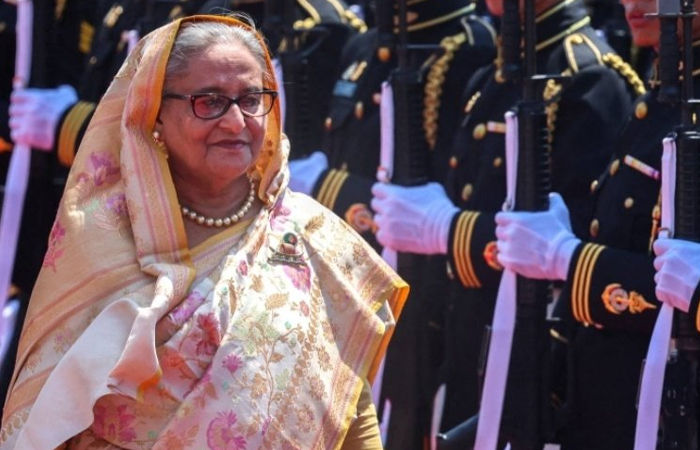
Bangladesh Supreme Court's decision on reservation: The situation in Bangladesh is out of control. The Prime Minister has left the country and taken refuge in India. The protesters occupied his residence. Then the news of the coup came to everyone. According to a recent report, the Bangladesh Army has said that an interim government will be formed in the country. This shows that Sheikh Hasina has resigned.
So the issue of discussion here is why such a situation arose in Bangladesh? What is the reason for this burning? Let us understand…
Amid the ongoing violence over reservation in Bangladesh, the Supreme Court gave a big decision. The Supreme Court of Bangladesh canceled most of the reservations in government jobs. The Supreme Court also overturned the lower court's order to retain the reservation and ordered that 93 percent of the jobs would be based on merit. Now only five percent reservation will be given to the families of the brave women of the 1971 war.
Jobs will be given on the basis of merit: Supreme Court
The Supreme Court overturned the High Court's decision and said that almost all government jobs should be given on the basis of merit. It is worth noting that there was a period of violence in Bangladesh for several days regarding reservation reform, in which a large number of people lost their lives. In view of this violence, Prime Minister Hasina's government had imposed curfew in the entire country and now when the situation went out of control, she had to leave the country.
What happened in the Supreme Court hearing?
During the hearing in the Supreme Court, five lawyers were allowed to present arguments on behalf of the students. Eight out of the nine lawyers present in this hearing said that the High Court's decision should be overturned. Only one lawyer advocated reservation. After the Reserve Bank of India's reforms in Bangladesh, one-third of the government jobs were reserved for the families of those who participated in the 1971 war. Now the Supreme Court has said that only 5 percent of the seats can be reserved for the families of freedom fighters.
Supreme Court ordered appointment on the basis of merit for 93% of the posts
56 percent of government jobs in Bangladesh were reserved under the quota system. Out of which 30 percent was reserved for the descendants of the freedom fighters of 1971, 10 percent for backward administrative districts, 10 percent for women, 5 percent for ethnic minority groups and one percent for disabled people. However, students were agitating against the 30 percent reservation given to the descendants of freedom fighters. In such a situation, the Supreme Court ordered appointment on the basis of merit for 93 percent of the posts in government jobs, while directing to give only seven percent reservation to the descendants of the fighters of the 1971 freedom struggle and other categories. It is worth noting that about 3 thousand government jobs are released every year in Bangladesh, for which about 4 lakh candidates apply.
There was also a movement in Bangladesh in 2018
In 2018, there was a violent student movement against this quota system in Bangladesh. Then Sheikh Hasina's government decided to suspend the quota system. This decision of the government was challenged in the High Court by the descendants of the freedom fighters of the Liberation War. Last month, the High Court overturned the decision of the Sheikh Hasina government and ruled that the quota system should remain as it is. After this decision of the court, violent protests started across Bangladesh. Protesters damaged public property, set buses and trains on fire. The situation became so uncontrollable that the Hasina government had to deploy the army on the streets.
 look news india
look news india